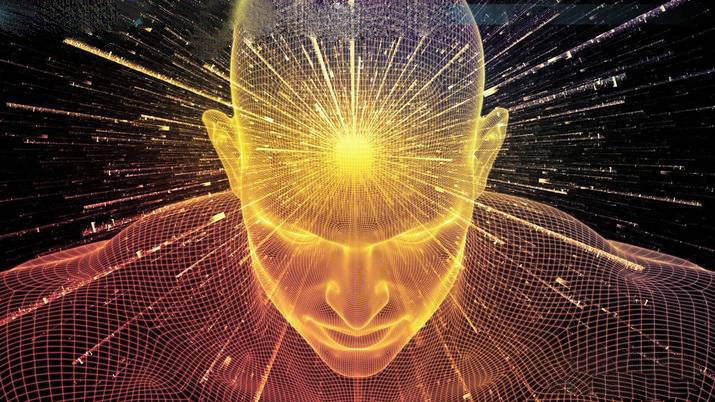Amidst all the hues and cries about identity and identity related frictions to which Manipur is no stranger, it is difficult not to recall what so many scholars have said in the context of different circumstances their works were based on, but nicely rounded up by Yuva Noah Harari in his bestselling work Sapiens: A Brief History of Humankind. Beside linguistic ability, the one quality which lifted Homo Sapiens to an altogether different plane on the evolutionary ladder is their ability to create fictions and organize themselves around them on scales never known before and reached an orbit simply beyond the reach of the rest of the animal kingdom. It is not certain how this came to be, but it does seem to have happened quite suddenly, perhaps by an extraordinary mutation in neurological structure of the brain, thereby outdoing evolutionary pace of gradual changes brought about by the phenomenon of natural selection. Perhaps this is another evidence of the “Punctuated Equilibrium” theory of evolution first propounded by evolutionary scientists Niles Eldredge and Stephen Jay Gould in a jointly written paper now considered landmark in the field. Indeed, Harari says the acquisition of this ability provided the vital spark that ignited what he calls the Cognitive Revolution and this he summarises is likely to have occurred about 70,000 years ago.
The Cognitive Revolution in essence gave humans the power of fiction, or to put it another way, imagination, and to build bondages and communities of very large scales, giving them an unprecedented advantage in their fight for survival with the rest of the animal kingdom. Jeremy Rifkin in The Empathic Civilisation for instance calls religion, tribe, nation etc. fictions created by humans. Likewise, Benedict Anderson calls the nation an imagined community in his book Imagined Community: Reflections on the Origin and Spread of Nationalism, so does Amartya Sen imply this in his book Identity and Violence: The Illusion of Destiny where he argues everybody has multiple identities and peace and conflict will depend on which of these a community chooses to give the primacy to. All these scholars have said it differently in different contexts but Harari summarises the insight most succinctly.
Take the case of religion. Once upon a time, before the Cognitive Revolution, when Sapiens were no different from other primates, there would have been no religion, just as the common rhesus monkeys or the hoolock gibbons obviously have none even today. Humans, quite unlike them, have created several religions as it suits them in imagining how they and the world they live in came about. They can understand or believe in a life beyond life and evolve sets of norms that would promote their chance of a better life in the next life. But try explaining this to your dog or cat, that if they misbehave, they would be miserable in the next life to realise that the power of such imaginations are exclusively in the domain of humans.
This is not about being dismissive of fiction or imagination. These fictions that Sapiens created are what made it possible for them to organise and coordinate on previously unthinkable scales. The fictions they thus create have in fact become a rich part of their reality, determining the shape of their lives and politics. Fuelled and motivated by their fictions such as religion, ethnicity, nationhood, they have achieved scientific wonders as well as brought about nightmares of wars upon themselves. No other animals can do this. Wolves hunt in packs, elephants roam in herds, but these bondages are determined by instinct and sensory perceptions. It can never be in any sense enter the space of abstract realities that only exist in the imagination and fictions of humans. There can never be for instance, a mass movement by wolves for the rights of wolfhood, or dogs for doghood. This unique realm of abstract reality is exclusive to humans. In a way, this is also in some sense, though not entirely, an endorsement of Hegel’s thought on a how “concept” or “consciousness” is the precondition for whatever is there in the objective reality – “that things exist for actualizing their a-priori pure concept”.
Nobody can dismiss identity, ethnicity or national affiliations as nothing more than fictions, for though they are indeed fictions, they are much more than fiction. In their own ways, they are as real as any reality can be, capable of awakening strong passions of love and hate as anything real can. The positive note is, though they command real passion, since they no doubt are fictional creations of humans, they should be amenable to changes and evolution too, and without our knowing it, they indeed have been changing. Inherent characters of nations, religions, ethnicity etc., have all always been in a constant flux, and these changes often happen during a lifetime and in full scrutiny of everybody. In time’s eternal progress, enemies have turned friends and friends have turned enemies too in never ending cycles. Ethnicities and identities have transformed too, and quite inevitably too. This being so, it should not be impossible for any society, more specifically ours, to seek to eliminate frictions within it pertaining to ethnic and religious affiliations by broadening their very definition and understanding, as and when situations demand.










